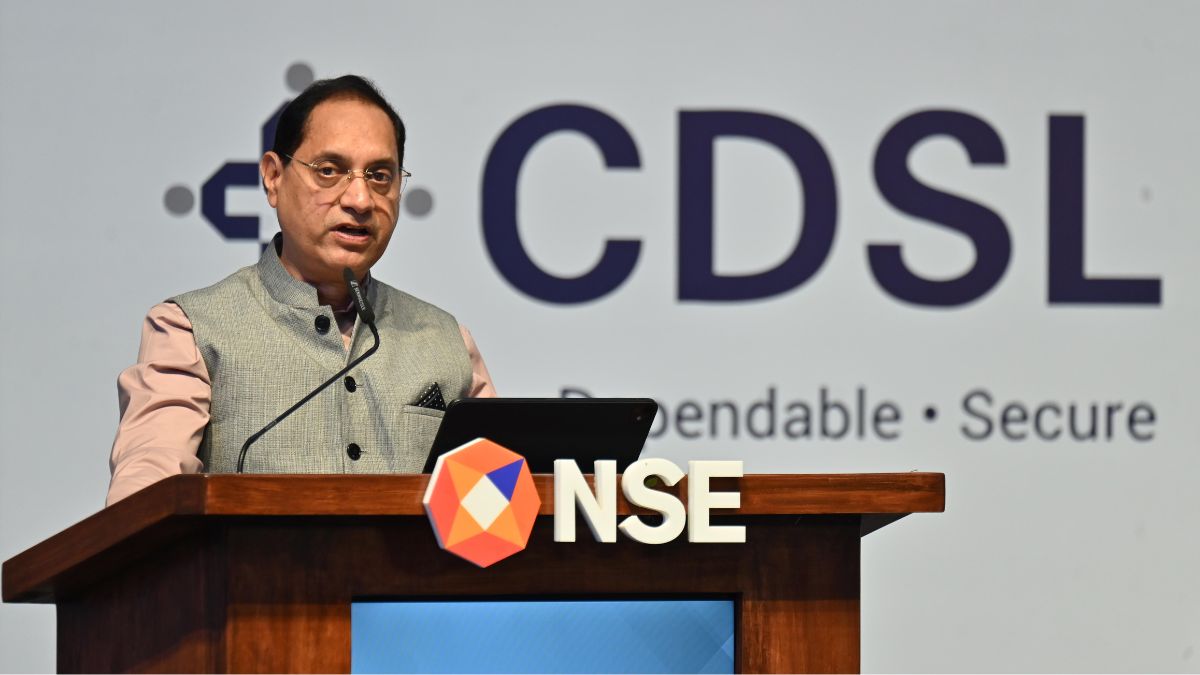After Jane Street debacle, Sebi chief Tuhin Kanta Pandey calls for upgrade in surveillance measures
 Sebi chairman Tuhin Kanta Pandey speaks at a National Stock Exchange event in Mumbai | Amey Mansabdar
Sebi chairman Tuhin Kanta Pandey speaks at a National Stock Exchange event in Mumbai | Amey Mansabdar
At the heels of the Securities and Exchange Board of India (Sebi) action against US trading giant Jane Street last week, the market regulator’s chairman, Tuhin Kanta Pandey, has said that the whole matter is being looked at as a surveillance issue. Pandey also pointed out that the surveillance measures were being strengthened and reiterated that manipulative practices wouldn’t be tolerated.
On Friday, Sebi barred Jane Street from accessing local securities markets and, in an interim report, alleged that the trading firm made unlawful gains of over ₹4,843 crore, which is going to be impounded. The allegations are that Jane Street Group manipulated stock market indices through positions taken in the derivatives market. The investigation is ongoing, and Jane Street has said it will further engage with the regulator, and it is committed to operating in compliance with all regulations in which it operates.
“We are watching it as basically a surveillance issue, and surveillance at both the exchange level and Sebi level will continue, and we will also upgrade those surveillance measures,” Pandey said on the sidelines of an event at the National Stock Exchange in Mumbai.
He pointed out that a great deal of analytical work had been done based on high-volume data. Pandey, however, noted that manipulative practices can be worked out by different players in different ways, and there is no one particular way to assess that.
“Our PFUTP (Prohibition of Fraudulent and Unfair Trade Practices) regulations clearly mention that manipulative and fraudulent practices are not allowed in the market. Sebi has all the powers to investigate and bring it about,” he said.
Pandey was speaking at an event that marked the launch of the proxy advisory recommendations feature on the e-voting system in the investor app by CDSL and NSDL. The feature will integrate the recommendations from proxy advisory firms in the app, and this should help retail shareholders make informed decisions while voting on corporate resolutions. Pandey said this was an important step to empower retail investors.
“It will help them participate in shareholder resolutions and also contribute to strengthening the corporate governance ecosystem. Voting on shareholder resolutions is one of the most powerful tools available to investors to hold company managements accountable and to ensure that their voices are reflected in the corporate actions,” he said.
Separately speaking during the event, Kamlesh Chandra Varshney, whole-time member of Sebi, said that the regulator had held a meeting with brokers and one of the proposals being discussed was about rationalisation of penalties.
“We outlined three to four objectives. Number one was how do we rationalise penalties, then can we have only one exchange designated for imposing penalties, and the most important point was, should we call it a penalty? Many of these are not penalties, and unnecessarily, it is a stigma on the broker when it is imposed,” Varshney said.
He added that, along with the finance industry, various steps were being taken to help further ease the process of doing business.
“Right now, investors have to submit [Form] 15G and [Form] 15H separately with each deductor. Can we have a system where it can be submitted only at one place, and then they get the benefit of that particular form from all the deductors. There are many such initiatives, which are at work,” said Varshney.
Forms 15G and 15H are self-declaration forms that a taxpayer submits for claiming certain incomes, like interest income, without tax deductions.
Business